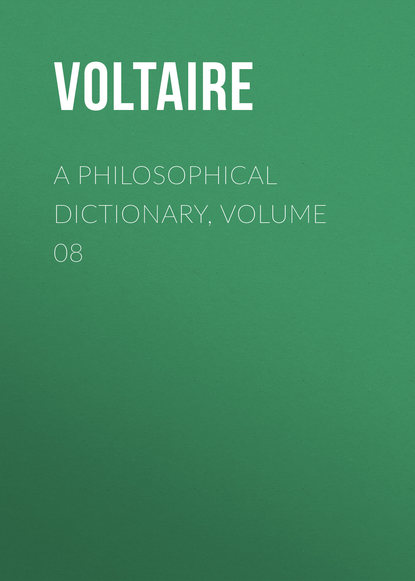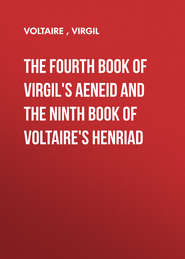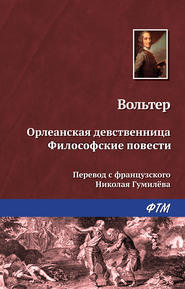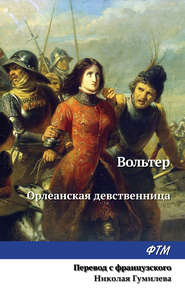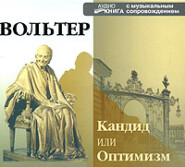По всем вопросам обращайтесь на: info@litportal.ru
(©) 2003-2024.
✖
A Philosophical Dictionary, Volume 08
Настройки чтения
Размер шрифта
Высота строк
Поля
THE EMPEROR
Yes, it is certainly, as you say, giving them almost for nothing. I suppose your celebrated and benevolent city derives just about the same sum from each of my three neighbors – the Great Mogul, the Emperor of Japan, and the Empress of Russia; and also from the Persian and the Turkish empires?
FATHER BOUVET
I cannot exactly say that is yet the case; but, with Gods help and our own, I have no doubt it will be so.
THE EMPEROR
And how are you, who are the vicars apostolic, to be paid?
FATHER BOUVET
We have no regular wages; but we are somewhat like the principal female character in a comedy written by one Count Caylus, a countryman of mine; all that I … is for myself.
THE EMPEROR
But pray inform me whether your Christian princes in Europe pay your Italian friend or patron in proportion to the assessment laid on me.
FATHER BOUVET
No, they do not! One-half of Europe has separated from him and pays him nothing; and the other pays him no more than it is obliged to pay.
THE EMPEROR
You told me some time since that he was sovereign of a very fine and fertile territory.
FATHER BOUVET
Yes; but it produces very little to him; it lies mostly uncultivated.
THE EMPEROR
Poor man! he does not know how to cultivate his own territory, and yet pretends to govern mine.
FATHER BOUVET
Formerly, in one of our councils – that is, in one of our assemblies of priests, which was held in a city called Constance – our holy father caused a proposition to be made for a new tax for the support of his dignity. The assembly replied that any necessity for that would be perfectly precluded by his attending to the cultivation of his own lands. This, however, he took effectual care not to do. He preferred living on the produce of those who labor in other kingdoms. He appeared to think that this manner of living had an air of greater grandeur.
THE EMPEROR
Well, go and tell him from me, that I not only make those about me labor, but that I also labor myself; and I doubt much whether it will be for him.
FATHER BOUVET
Holy Virgin! I am absolutely taken for a fool!
THE EMPEROR
Begone, this instant! I have been too indulgent.
BROTHER ATTIRET TO FATHER BOUVET
I was right, you see, when I told you that the emperor, with all his excellence of heart, had also more understanding than both of us together.
PRAYER (PUBLIC), THANKSGIVING, ETC
Very few forms of public prayers used by the ancients still remain. We have only Horace's beautiful hymn for the secular games of the ancient Romans. This prayer is in the rhythm and measure which the other Romans long after imitated in the hymn, "Ut queat laxis resonare fibris."
The Pervigilium Veneris is written in a quaint and affected taste, and seems unworthy of the noble simplicity of the reign of Augustus. It is possible that this hymn to Venus may have been chanted in the festivals celebrated in honor of that goddess; but it cannot be doubted that the poem of Horace was chanted with much greater solemnity.
It must be allowed that this secular poem of Horace is one of the finest productions of antiquity; and that the hymn, "Ut queat laxis," is one of the most flat and vapid pieces that appeared during the barbarous period of the decline of the Latin language. The Catholic Church in those times paid little attention to eloquence and poetry. We all know very well that God prefers bad verses recited with a pure heart, to the finest verses possible chanted by the wicked. Good verses, however, never yet did any harm, and – all other things being equal – must deserve a preference.
Nothing among us ever approached the secular games, which were celebrated at the expiration of every hundred and ten years. Our jubilee is only a faint and feeble copy of it. Three magnificent altars were erected on the banks of the Tiber. All Rome was illuminated for three successive nights; and fifteen priests distributed the lustral water and wax tapers among the men and women of the city who were appointed to chant the prayers. A sacrifice was first offered to Jupiter as the great god, the sovereign master of the gods; and afterwards to Juno, Apollo, Latona, Diana, Pluto, Proserpine, and the Fates, as to inferior powers. All these divinities had their own peculiar hymns and ceremonies. There were two choirs, one of twenty-seven boys, and the other of twenty-seven girls, for each of the divinities. Finally, on the last day, the boys and girls, crowned with flowers, chanted the ode of Horace.
It is true that in private houses his other odes, for Ligurinus and Liciscus and other contemptible characters, were heard at table; performances which undoubtedly were not calculated to excite the finest feelings of devotion; but there is a time for all things, "pictoribus atque poetis." Caraccio, who drew the figures of Aretin, painted saints also; and in all our colleges we have excused in Horace what the masters of the Roman Empire excused in him without any difficulty.
As to forms of prayer, we have only a few slight fragments of that which was recited at the mysteries of Isis. We have quoted it elsewhere, but we will repeat it here, because it is at once short and beautiful:
"The celestial powers obey thee; hell is in subjection to thee; the universe revolves under thy moving hand; thy feet tread on Tartarus; the stars are responsive to thy voice; the seasons return at thy command; the elements are obedient to thy will."
We repeat also the form supposed to have been used in the worship of the ancient Orpheus, which we think superior even to the above respecting Isis:
"Walk in the path of justice; adore the sole Master of the Universe; He is One Alone, and self-existent; all other beings owe their existence to Him; He acts both in them and by them; He sees all, but has never been Himself seen by mortal eyes."
It is not a little extraordinary that in the Leviticus and Deuteronomy of the Jews, there is not a single public prayer, not one single formula of public worship. It seems as if the Levites were fully employed in dividing among themselves the viands that were offered to them. We do not even see a single prayer instituted for their great festivals of the Passover, the Pentecost, the trumpets, the tabernacles, the general expiation, or the new moon.
The learned are almost unanimously agreed that there were no regular prayers among the Jews, except when, during their captivity at Babylon, they adopted somewhat of the manners, and acquired something of the sciences, of that civilized and powerful people. They borrowed all from the Chaldaic Persians, even to their very language, characters, and numerals; and joining some new customs to their old Egyptian rites, they became a new people, so much the more superstitious than before, in consequence of their being, after the conclusion of a long captivity, still always dependent upon their neighbors.
… In rebus acerbis
Arcius advertunt animos ad religionem.
– LUCRETIUS, book iii., 52, 53.
… The common rout,
When cares and dangers press, grow more devout.
– CREECH.
With respect to the ten other tribes who had been previously dispersed, we may reasonably believe that they were as destitute of public forms of prayer as the two others, and that they had not, even up to the period of their dispersion, any fixed and well-defined religion, as they abandoned that which they professed with so much facility, and forgot even their own name, which cannot be said of the small number of unfortunate beings who returned to rebuild Jerusalem.
It is, therefore, at that period that the two tribes, or rather the two tribes and a half, seemed to have first attached themselves to certain invariable rites, to have written books, and used regular prayers. It is not before that time that we begin to see among them forms of prayer. Esdras ordained two prayers for every day, and added a third for the Sabbath; it is even said that he instituted eighteen prayers, that there might be room for selection, and also to afford variety in the service. The first of these begins in the following manner:
"Blessed be Thou, O Lord God of our fathers, the God of Abraham, Isaac, and Jacob; the great God, the powerful, the terrible, the most high, the liberal distributor of good things, the former and possessor of the world, who rememberest good actions, and sendest a Redeemer to their descendants for Thy name's sake. O King, our help and Saviour, our buckler, blessed be Thou, O Lord, the buckler of our father Abraham."
It is asserted that Gamaliel, who lived in the time of Jesus Christ, and who had such violent quarrels with St. Paul, ordered a nineteenth prayer, which is as follows:
"Grant peace, benefits, blessing, favor, kindness, and piety to us, and to Thy people Israel. Bless us, O our Father! bless us altogether with the light of Thy countenance; for by the light of Thy countenance Thou hast given us, O Lord our God, the law of life, love, kindness, equity, blessing, piety, and peace. May it please Thee to bless, through all time, and at every moment, Thy people Israel, by giving them peace. Blessed be Thou, O Lord, who blessest Thy people Israel by giving them peace. Amen."
There is one circumstance deserving of remark with regard to many prayers, which is, that every nation has prayed for the direct contrary events to those prayed for by their neighbors.





